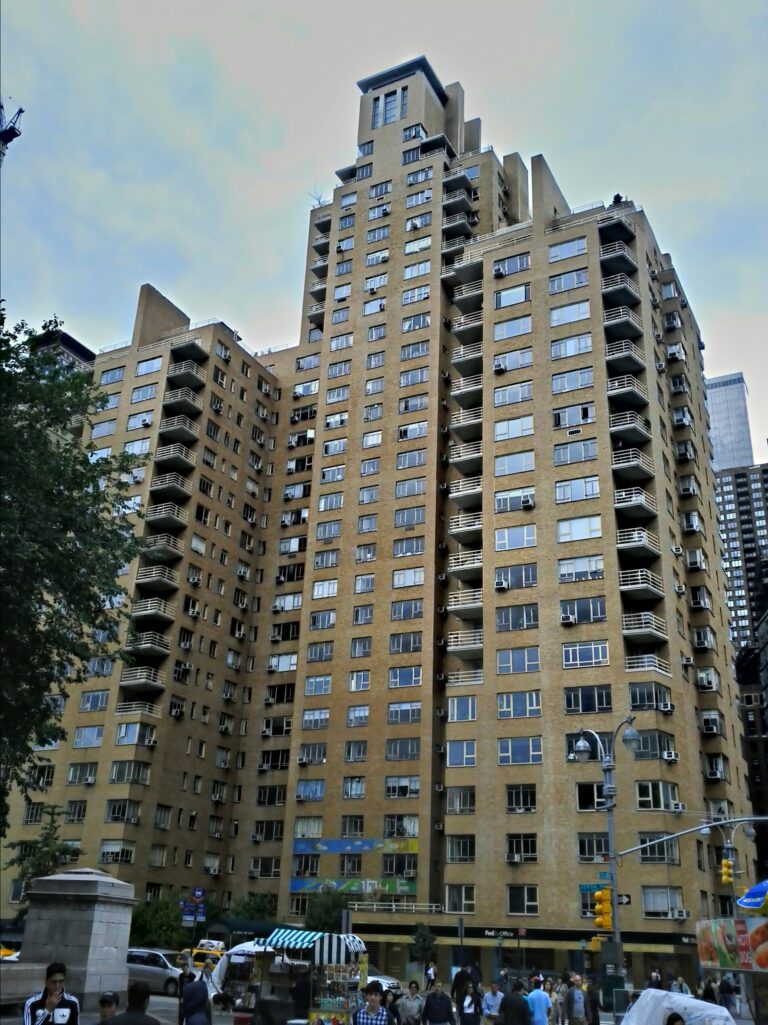Physical Address
304 North Cardinal St.
Dorchester Center, MA 02124
Physical Address
304 North Cardinal St.
Dorchester Center, MA 02124
Over the years, I’ve heard a wide variety of arguments against new housing. One of them is the “mysterious foreign investor” argument. According to this theory, new urban housing will all be bought up by billionaire foreign investors, who will purchase the property and never rent it out, thus preventing the new housing from increasing supply. (I have rebutted the argument here).* A variation of the argument is that because some high-end housing is vacant, supply is therefore adequate to meet demand. (I have addressed this idea here). Another argument is that housing markets are segmented: that if you increase the supply at the top of the market, it will not help anyone who is not already at the top of the market. It seems to me that these arguments contradict each other: the first argument is based on the idea that high-end housing does affect the market as a whole (or would if rich people stopped using apartments as second homes); the second is based on the idea that high-end housing doesn’t affect the rest of the market at all. *In addition, I have recently published a much longer article in the New Mexico Law Review, discussing the pros and cons of high-end condos.
So this weekend we learned that condos are bizarre and pretty much guaranteed to cause problems in the longrun, when maintenance bills skyrocket, the buildings are out of date, and the land beneath them appreciates, but you can’t redevelop the property because all the owners will never agree. You guys posted some great comments, but I wanted to highlight a few. This weekend we learned that Singapore has a method called “en bloc” redevelopment, whereby a condo building can be sold in its entirety to a single developer, with the idea that he’ll soon tear it down, if 90 (now 80) percent of the building agrees. Canada, on the other hand, is just starting to deal with the issue, but so far the only option for redevelopment is going to court – much messier compared to how it’s done in Singapore. And today, Japan and Israel! Turns out they’re dealing with the issue of aging condos pretty much the same way as Singapore. First comes Philip Brasor’s comment about Japan. Philip has a great blog and writes a column for the Japan Times about real estate in the country. In his comment he sums up a JT article he wrote on the topic which covers pretty much everything you wanna know about redeveloping condos in Japan: The problem is that many of the condos built in the 60s and 70s are now quite old, and unlike in the West, where it’s expected that property values will always increase over time, many in Japan are not worth much of anything unless they’re in the center of major cities. Until 2002, there was no specific law dealing with redevelopment of resident-owned condominium buildings, so if residents wanted to tear their building down and put up something new they had to gain 100% […]

It sounds like a dumb question – they exist because people like the security of owning a home combined with the services and lower costs that apartments offer, duh! But upon further reflection, condominium-style tenure can be a bit problematic. The main problem, as I see it, is that a building that’s been carved up into condo units can almost never be redeveloped. So much so that preservationists have been known to cheer on developers doing condo and co-op conversions of historic properties: Indeed, sometimes preservation advocates look to condo developers as white knights. Since the Bialystoker Center for Nursing and Rehabilitation on East Broadway closed last year, Laurie Tobias Cohen, the executive director of the Lower East Side Jewish Conservancy, has been “extremely eager” for a developer to buy the historic building and convert it to co-ops or condos. The closing of the nursing home was a great loss, she said; the goal now is to prevent the demolition, or further deterioration, of the building. “What we don’t want,” she said, “is to lose any more of the built historic fabric.” This is no doubt an elegant solution to the problem of unprotected historic buildings, but what about the less-than-stunning condos and co-ops that have been built in the US – and pretty much every where else in the world! – since the end of World War II? Why are condo buildings impossible to redevelop? Simple: gravity! You can’t keep your apartment on the 17th floor while someone demolishes their 5th floor unit. In Canada, Australia, New Zealand, and Singapore, they call condos “strata” apartments, which reflects what they really are: floors of apartments layered inseparably atop each other. To redevelop a condo or co-op building, you have to buy every single unit, after which you can dissolve the condo structure […]